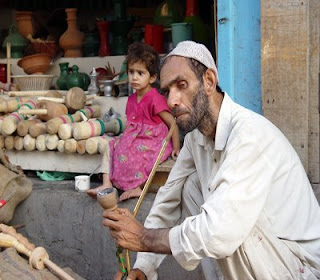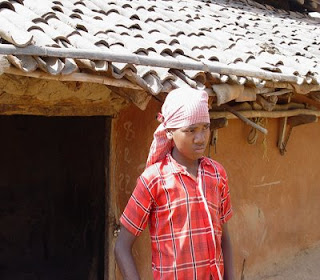
I know nothing about my family beyond my great grandfather. My grandfather, who was a Sanskrit scholar, and who dabbled in astrology as well, died in the November of 1985. A day before he died, he had been shifted to a hospital. I remember my mother had come home in the evening after visiting him, and, in the night, as my father prepared to lay our beds, she advised him against it. “We won’t require them,” she said. True to her word, a little after midnight, the message came from the hospital. Grandfather had passed away in his sleep with my eldest uncle by his side.
I was too young then – a boy, who would turn ten coming February. And I had no inclination towards knowing about my ancestors. It was only after my grandmother’s death in 2003 that my ignorance turned into a void. I had just returned from Baghdad after covering the war for a news channel. I remember looking at my ailing grandmother, who lay in her bed, her breath running up and down her chest like a squirrel.
The next morning, I left for Benares. The same night, she passed away.
I remember feeling nothing about it after I had kept down the phone. Death, no matter whose it is, leaves my father shaken. I remember offering to return immediately even when I didn’t really mean it. Father, I suppose, didn’t want to ruin my trip.
“Don’t worry, I’ll manage,” he said, while trying to hold back, in vain, his anxiety.
I didn’t turn up for the cremation. After I returned, two days later, I remember sitting at the spot where my grandmother had breathed her last. Still, I felt nothing.
A year later, I began researching for my novel, set around the 1947 tribesmen attack on Kashmir. My maternal uncle – a boy of ten in 1947 – was in the north Kashmir town of Baramulla when the tribesmen came in buses, entering through the border town of Uri and plundering it. Baramulla came next.
One muggy evening, in June 2004, my maternal uncle and I sat on a sofa, in the backdrop of a noisy air-conditioner.
And then he began telling me about his life.
It was till dawn that he told me about those days – on how, along with the Mahura power station, their lives were plunged into darkness. The conversation – one way most of the time – continued for almost a week. He returned to Jammu, where he lives in a one-bedroom flat, nursing his diabetic wife, after their only son was dragged out of the bus by terrorists, in 1997, and shot dead. I kept on asking him, over phone from Delhi, and in person whenever I visited Jammu or when he revisited us, till a complete picture of the family from my mother’s side was evolved.
A majority of those memories forms the basis of my novel.
In the past five years or so, I have made many enquiries about my paternal side. Most of the knowledge I have acquired doesn’t go beyond my grandfather. My youngest uncle, who in his youth has experimented with writing and theatre, and who retired last year from active government service, blames his two elder brothers for lack of interest. He says he was too young when his father and mother could have spoken about the family. I don’t completely buy that argument but I can’t blame him or his two elder brothers. All of them spent their lives – first in establishing themselves in their respective positions and saving money for the construction and, later, the renovation of the house they painstakingly built in what was then a Srinagar suburb, and then dealing with the post-exile trauma in much part of the 1990s, after driven out of the valley.
Today, all I know about my great grandfather is that he was named after the preserver in the Hindu trinity – Lord Vishnu. He was fond of opium and became a widower shortly after my grandfather was born. In fact, I have learnt that after my grandfather was born, he fell seriously ill. His distraught mother – my great grandmother, is believed to have prayed to the God to spare his life and instead take hers.
The same day, she passed away. A day later, my grandfather’s condition improved considerably, and he lived up to his mid seventies. So, whole my grandfather spent his life in the service of the language of the Gods, his father lay dazed in Opium smoke, flirting with married women in the neighbourhood. He had many lovers, and spent most of his time reciting Kashmiri poetry to them.
As a young man, when I would write passionate letters to the women I fell in love with (which was quite often), my father would sometimes discover them, and then remark that I was a reincarnation of my great grandfather.
I am sure he must have also suspected me of experimenting with Opium.
I have two New Year resolutions. One, I strive to write every day. Two, I will visit the holy city of Haridwar and get a family tree made.
I better learn more about a man called Vishnu.
May be I could learn a trick or two about love as well.









































